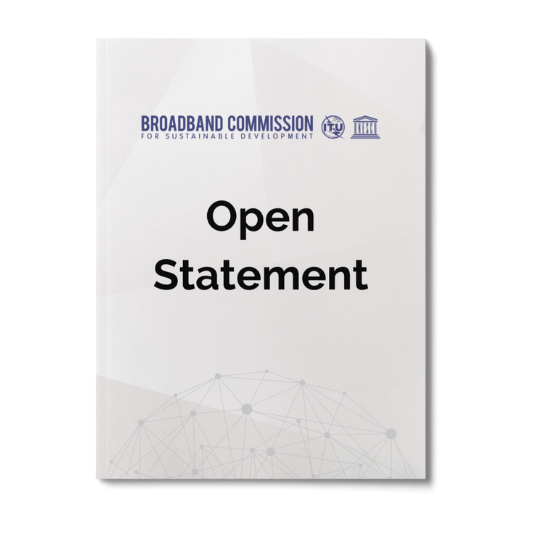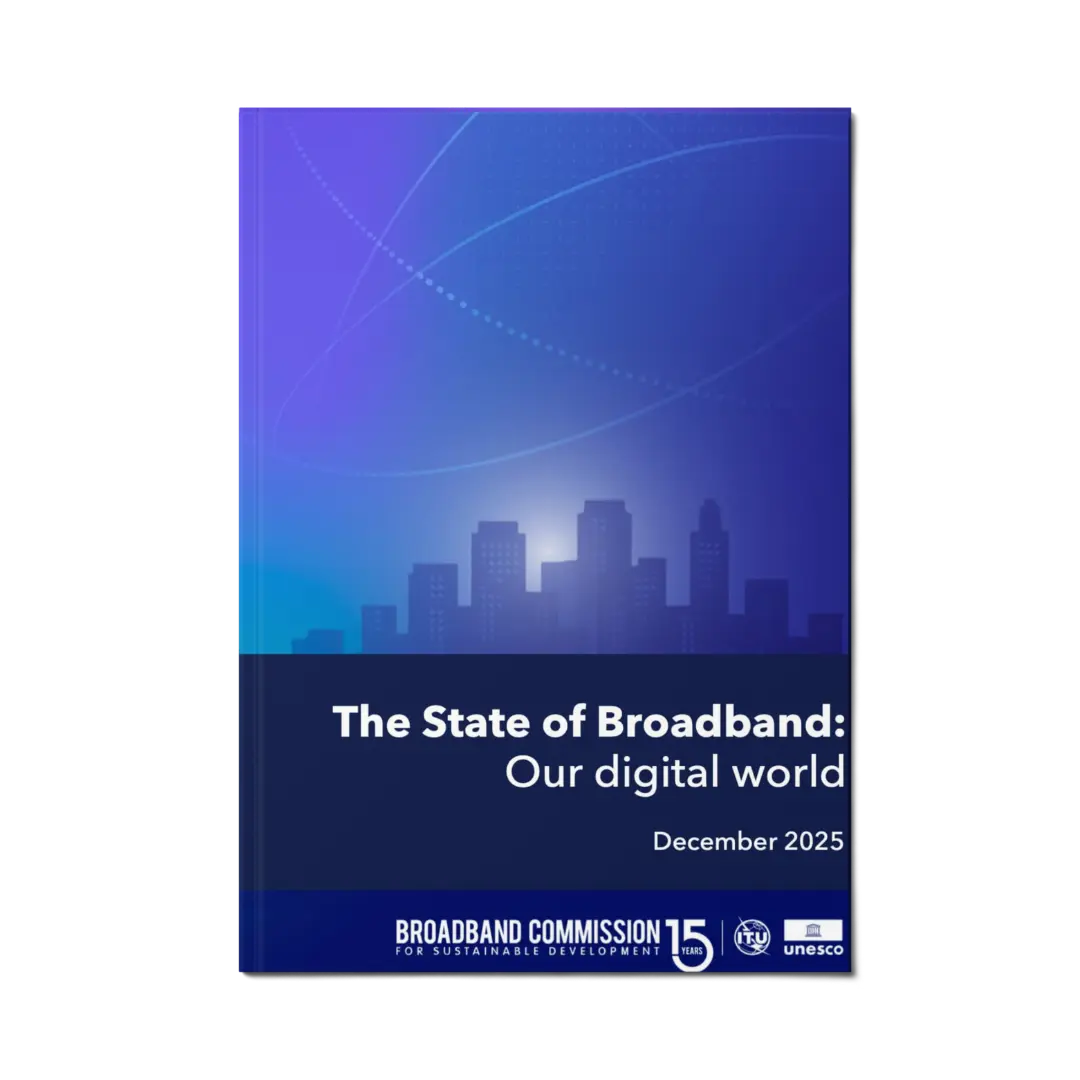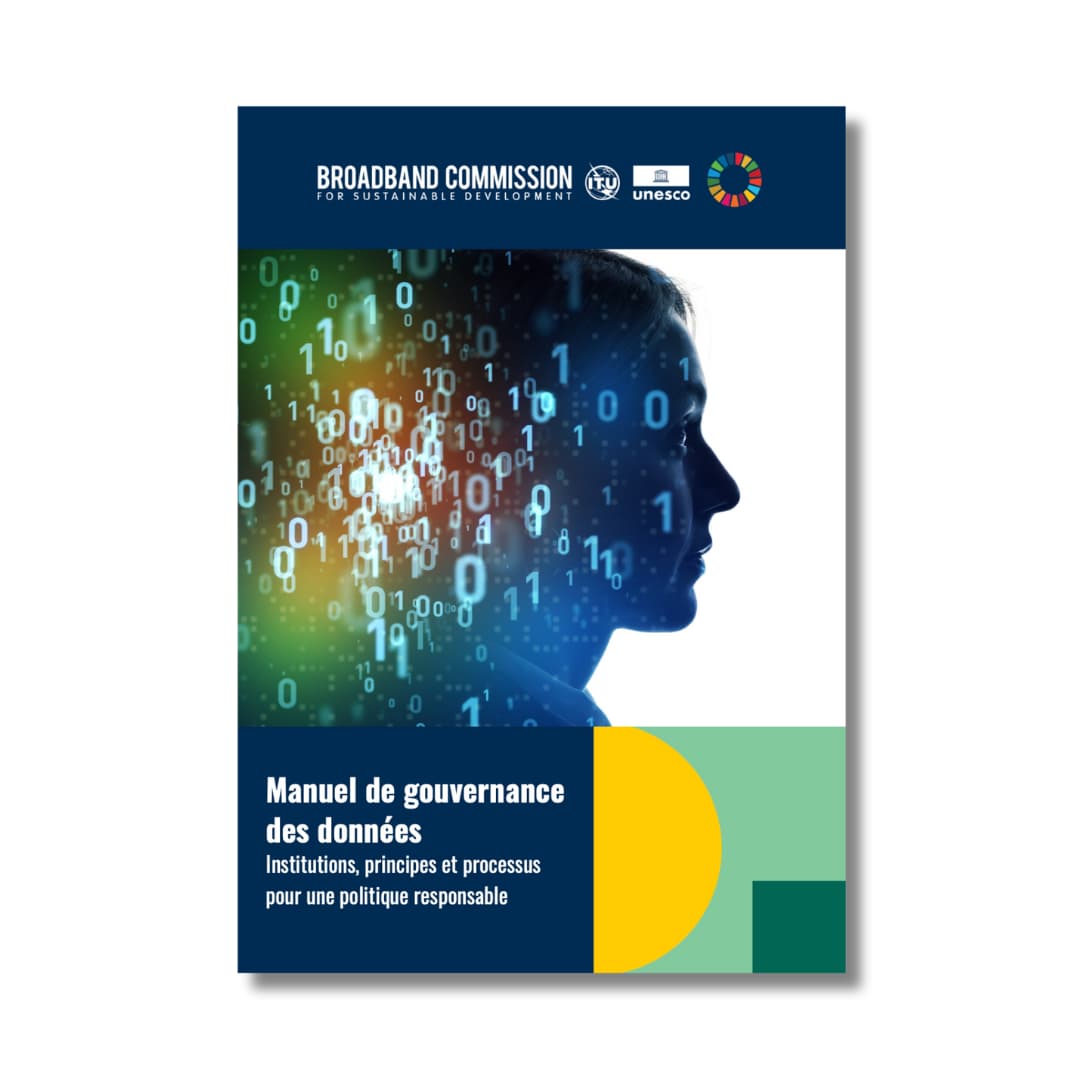Ensuring that No One is Left Behind
The UN Broadband Commission for Sustainable Development addresses this Open Statement to the meeting of the UN High-Level Political Forum (HLPF) taking place in New York from 11-20 July 2016.
We, the UN Broadband Commission for Sustainable Development, affirm our sincere conviction and belief in the vital role of broadband in building and transforming our economies and societies, and achieving the Sustainable Development Goals (SDGs) agreed by world leaders in September 2015. We urge attendees to the UN High-Level Political Forum (HLPF) to show their support for the global roll-out of broadband infrastructure and broadband-enabled applications and services to ensure inclusive economic growth and lift people out of poverty around the world.
Today, 4.2 billion people (or 57% of the world’s population) are offline for a wide range of reasons, but often also because the necessary connectivity is not present or not affordable. Information and Communication Technologies (ICTs) are vital enablers of the three pillars of sustainable development – economic development, social development and environmental protection. Governments must strive to shape and create the inclusive world of 2030 and to connect the unconnected, drawing on ICTs and digital e-skills as key to enabling inclusion, economic growth and development, often through mobile broadband in the access network. The Broadband Commission estimates that it will cost US$450 billion to provide the next 1.5 billion people with Internet access. As most of this investment will be delivered by the private sector, investment-friendly enabling policy environment is a crucial ingredient in bringing everyone online.
Broadband can drive economic growth, prosperity and sustainability. A body of research and evidence suggests that broadband can add to Gross Domestic Product (GDP); help create innovation and new jobs in new products and services (e.g. web marketing and start-ups), advance financial inclusion and improve labour and agricultural productivity and energy efficiency. Recent research also points to significant displacement effects in skills and jobs (e.g. the World Bank’s World Development Report 2016: “Digital Dividends”, which highlights the importance of “analogue foundations” such as education, to maximize the benefits of development). Broadband infrastructure and services can play a vital role in empowering people to adjust to changes in technology and labour markets (including through lifelong learning and encouraging entrepreneurship).
Broadband can help address basic needs. In developing countries, broadband can help meet the basic needs of food, water and energy. ICT infrastructure can help improve the supply chain and distribute food more efficiently and effectively, avoiding wastage. Broadband infrastructure is the cornerstone to build smarter and more resilient cities, enhancing the inclusiveness and sustainability of the urban space. Sensors are being used to monitor wells, water usage and irrigation methods to use water more efficiently and improve water supply. Smart grids are helping improve energy supply and usage and reduce carbon footprints. Broadband can, and should, be used not just for cutting-edge applications in industrialized countries, but to meet basic needs in developing countries, where people’s needs are greatest.
Broadband can help lift people out of poverty by helping to deliver education. In developing countries, broadband can help meet the basic needs of food, water and energy, as well as access to health services and education. Broadband infrastructure can be used to deliver distance education, lifelong learning, or education for refugees and displaced persons. People must be empowered to transform information into knowledge for lifelong learning and digital skills, reflecting linguistic and cultural diversity. It will be vital to enable and facilitate creation of relevant broadband-enabled content, applications and services which people can access in their own local languages. Integrating ICTs into education and learning processes can help ensure that online learning is available, accessible and inclusive.
Broadband can improve health services, including through improved access to information, expertise, imagery and remote diagnosis. Improved ICT infrastructure, from basic mobile phones to smartphones, can be used to connect rural clinics, midwives and community health workers, to provide connectivity in times of emergency, to access and organize support services, and to improve the treatment options available, at both the individual patient level as well as for overall public services. Big Data and the Internet of Things (IoT) have a huge potential to improve the organization and coordination of humanitarian solutions and relief efforts and improve data analysis and policy-making, as we are able to monitor and respond to crises in real-time on the basis of better information.
Broadband can be used to monitor climate change and planetary processes. Satellite imagery and monitoring can be used to track and assess phenomena such as changes in ocean temperature, deforestation, thinning of the polar ice caps, animal migration, and land use. Building up time series data on all these matters can complement scientific research and track developments in all these processes, including the impact of changes in policy.
Broadband networks are vital for achieving the Sustainable Development Goals (SDGs). Digital inclusion is of paramount importance to ensure that no one, and no society, is left behind. This must include a special focus on bridging the digital gender divide, to empower every girl and woman through new technologies. Let us grasp this vital opportunity to strive for a world where every citizen can potentially experience the opportunities and benefits of universal, affordable and inclusive access and connectivity to ICTs. We urge you to enhance the policy environment to enable and facilitate deployment of broadband infrastructure and harness the potential that the effective collaboration among the governments, private sector and other stakeholders could deliver in connecting connect the world with broadband and develop relevant content and skills as a top priority for economic growth and social digital inclusion, so broadband can help facilitate and accelerate the achievement of the SDGs.
Signed,
Members of the UN Broadband Commission for Sustainable Development





